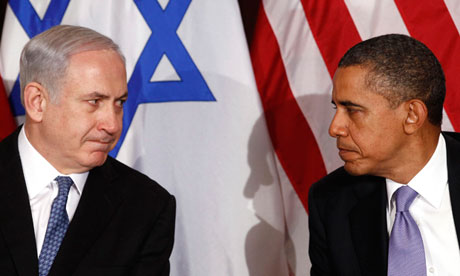
Can we call it a slap in the face? Yes, let’s call it that. Barack Obama contacted Benjamin Netanyahu to ask him for an immediate and unilateral cease-fire, and the Israeli prime minister responded with an unequivocal “No.”
The American strategy has failed once again. U.S. Secretary of State John Kerry’s plan to arrive at first a temporary, then a permanent, truce between Israel and Hamas has not worked.
The Israelis Reject John Kerry’s Plan
According to the Israelis, the secretary of state’s proposal conceded too much to Hamas. It was unacceptable. Created after an extensive tour of the region, Kerry’s plan took into account what the two countries closest to Palestinian fundamentalist training, Qatar and Turkey, had indicated would be a possible means of solving the crisis.
Israeli Prime Minister Benjamin Netanyahu did not like Kerry’s outreach to Ankara and Doha at all. The proposed truce would strengthen extremists, asserted the prime minister, who decided to spend Sunday on a sort of media tour of the American television networks, explaining to the American public the reasons for saying no to Kerry’s proposal.
Netanyahu thus laid the groundwork for saying no to President Obama’s second request, coming at the eleventh hour: a unilateral cease-fire. “Why should we apply a cease-fire, given that Hamas is still firing rockets at Israel?”* the prime minister told the president.
The Loss of American Influence
These are words falling on deaf ears. The Americans don’t have the weapons for peace. They can’t make the two sides communicate. If they move closer to Hamas’ views, Israel will shut the door. If they concede more to Tel Aviv, the Palestinians will turn down every agreement. The Americans can’t find the balance. But more than anything, they don’t seem to have the authority to force the two parties to come to an agreement.
They aren’t succeeding with Hamas, with whom who they have no relationship. They can’t do it with Israel, a country allied to the United States. The relationship between Obama and Netanyahu has always been cold, if not icy.
After the crisis broke out, the American president took an unequivocal stance: Tel Aviv had the right to defend itself from Palestinian rockets.
However, when the right of defense led to the deaths of dozens of civilians, Palestinian women and children, the White House tried to convince the two sides to sign a peace agreement. It was unsuccessful. In the face of that failure, Obama turned directly to Netanyahu — but he was forced to confront another rejection.
That is symbolic of America’s loss of influence in the region. The immobility that has characterized Obama’s politics around the Israeli-Palestinian question has brought this about; the two sides don’t listen to him. All this is complicated by the fact that Kerry does not seem to have the energy nor the capability that former Secretary of State Hillary Clinton demonstrated in 2012.
Obama’s calm composure in the Middle East will not bring about peace.
*Editor’s note: The original quotation, accurately translated, could not be verified.

Leave a Reply
You must be logged in to post a comment.